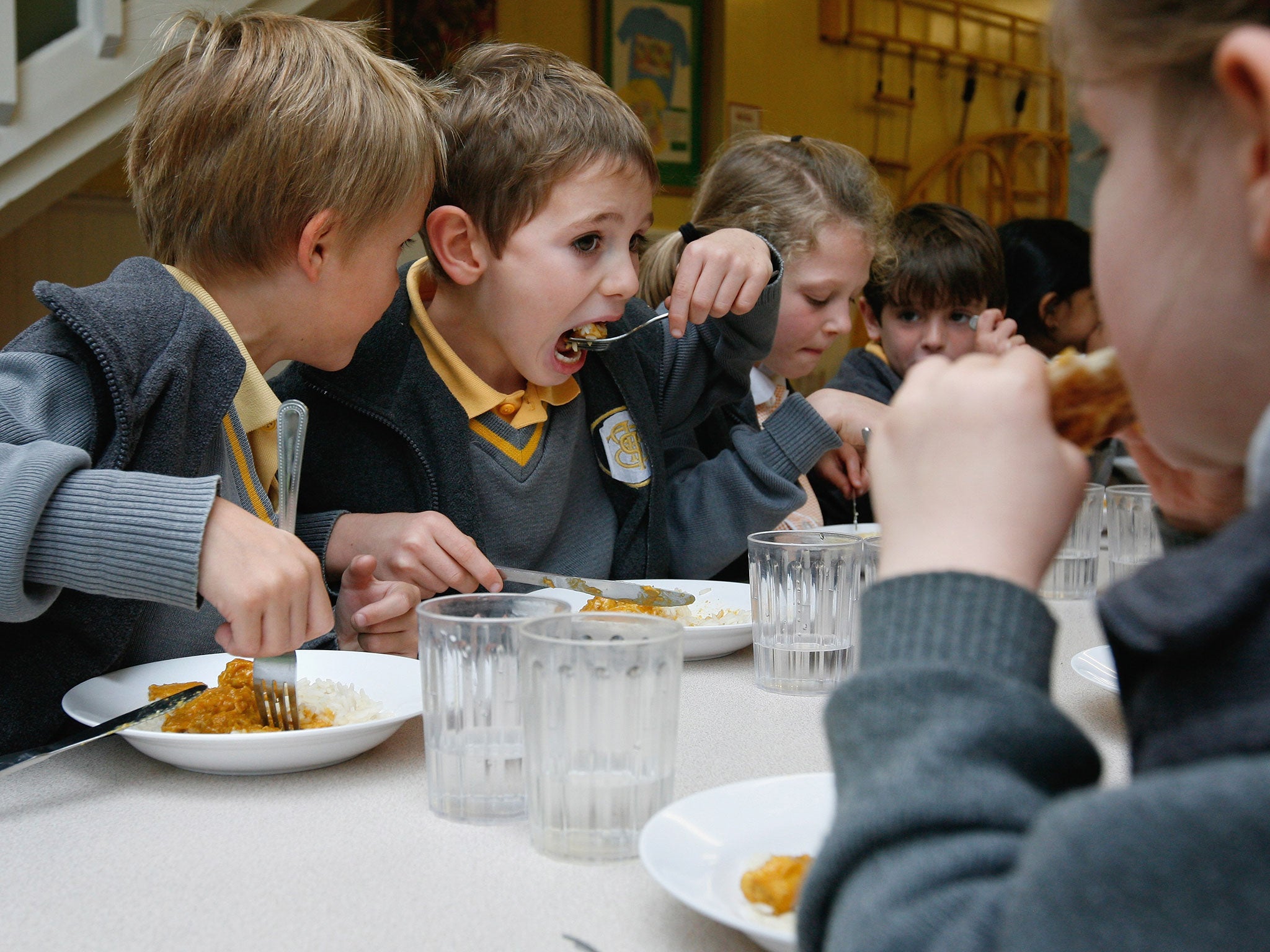Free school meals: Lib Dems promise to expand policy to all primary school pupils in next parliament
The policy will be included in a pre-election manifesto to be published later this week

Your support helps us to tell the story
From reproductive rights to climate change to Big Tech, The Independent is on the ground when the story is developing. Whether it's investigating the financials of Elon Musk's pro-Trump PAC or producing our latest documentary, 'The A Word', which shines a light on the American women fighting for reproductive rights, we know how important it is to parse out the facts from the messaging.
At such a critical moment in US history, we need reporters on the ground. Your donation allows us to keep sending journalists to speak to both sides of the story.
The Independent is trusted by Americans across the entire political spectrum. And unlike many other quality news outlets, we choose not to lock Americans out of our reporting and analysis with paywalls. We believe quality journalism should be available to everyone, paid for by those who can afford it.
Your support makes all the difference.All primary school children will receive free school meals if the Liberal Democrats have a role in the next government, the schools minister David Laws pledges today.
In an interview with The Independent, Mr Laws rejected criticism of the current programme to provide free meals for five- to seven-year-olds, and said the scheme would be rolled out for seven- to 11-year-olds in the lifetime of the next parliament if the Liberal Democrats are re-elected. The policy, which will be included in a pre-election manifesto to be published later this week, will benefit an extra three million primary-age children.
Mr Laws was speaking as 16,500 infant and primary schools prepare to start serving free meals to five- to seven-year-olds this week – realising a commitment made by Nick Clegg as his party’s conference last September.
“We never planned to keep it to just five- to seven-year-olds,” Mr Laws said. “In the education section of our pre-manifesto we will be saying that – if we form part of the next government– we’re committed to extending the free school meals policy to all primary schools by the end of the next parliament.”
The exact timing would be left until after the next election – but the pledge would be delivered by September 2019, he said.
Mr Laws also offered a robust defence of the scheme in the wake of criticism from local councils and teachers’ organisations which warned it had been introduced too hastily and that some schools would struggle to deliver on the pledge. He conceded that some schools would be serving cold food and others would have meals delivered to them by their neighbours but added that he believed delivery of the pledge would be “almost 100 per cent”.
In the first two authorities where schools have already started the new term – Leicestershire and Rutland – Mr Laws said officials had contacted 308 of their 320 schools and all had delivered pupils a hot meal. The councils confirmed that the rest had, too.
“It is one of the most important policies that we in the Liberal Democrats have delivered within the Department for Education since 2010,” he said. “It is on a par with the pupil premium” – which gives schools extra money for every disadvantaged pupil they take in, extending early years education to two-year-olds and improving accountability measures for schools.
“I’m a passionate advocate of the policy because it achieves so many things – it deals with child poverty and increases the socialisation of children,” Mr Laws said.
An army of officials from the DfE would be ringing as many schools as possible today, and Tuesday and Wednesday, to determine how many of the 16,500 primary and infant schools were delivering the policy effectively. “Over 98 per cent have said they will be serving hot food,” Mr Laws said. “That means fewer than 250 of the 16,500 schools are saying they will be delivering a cold dinner at the beginning of term.”
Many of these, though, would be improving their delivery by half-term, he said. Mr Laws said he was prepared to look at capital funding again if it proved to be necessary to ensure delivery of the pledge – which is a statutory obligation upon schools.
He said that if children were not receiving a free school meal they should complain to the head or the governors and, if that failed, they should raise it with their local council or the DfE.
“Let me say no one’s saying [that they won’t be delivering the policy],” he said. “Schools take their statutory responsibilities very seriously.”
He said that ministers have taken the decision to go ahead with the scheme this year because it was felt “if we can deliver it, we should do”.
Last month, the Local Government Association said it faced a shortfall of more than £25m for delivering the scheme – money that could have to be met from elsewhere in the budget such as improvements to classrooms. Teachers’ leaders said the Government had been “outrageous” and “reckless” in pressing ahead so quickly with the scheme.
But Mr Laws said it had earmarked £1.2bn for delivery of the plan – more than £150m of which would go towards providing better facilities to deliver the meals.
Join our commenting forum
Join thought-provoking conversations, follow other Independent readers and see their replies
Comments